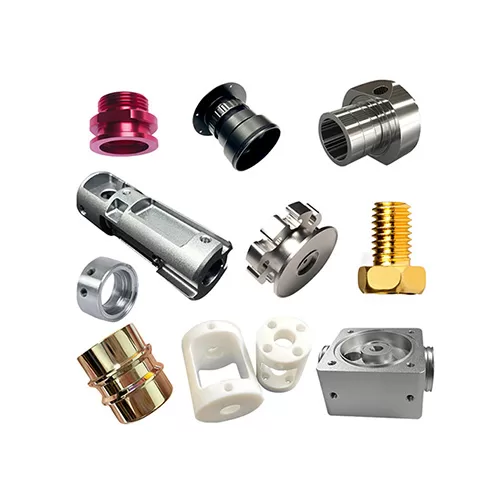As we all know, CNC milling machines can process various metal or non-metallic materials, so do you know what are the best CNC milling material?

CNC mills excel at cutting harder materials. Like all CNC machines, CNC mills are controlled by G-code created through CAM software. The G-code instructs the machine where to move the cutter head, how fast to rotate the cutter, how deep to cut, how to move the workpiece, and other factors related to speed, feedrate, and coordination. G-Code complexity depends on how many axes the milling machine has.
Milling machines can still be used for profiling softer materials, but not as well as CNC routers. The main difference between these machines is that with a CNC router, the workpiece remains stationary while the router cutting head is pointed at the surrounding workpiece, whereas a CNC mill moves both the head and the workpiece.
Although aluminum alloy has been the most versatile material for CNC milling, its advantages are good machinability and machinability, it can be welded and anodized, and its wide availability guarantees its economy. However, It is not the best material for CNC milling. Aluminum alloy is cheap and has many types, but in the process of CNC milling, the workpiece is generally stuck to the knife.
In our list of CNC machining materials, in addition to aluminum alloys, there are metal materials such as steel, copper, titanium, and non-metallic plastic materials such as PVC, POM, PP, and of course carbon fiber composite materials. Among these materials, the best material for CNC milling is titanium alloy.
Titanium is known for its strength, light weight, hardness and resistance to corrosion. Although the price of titanium alloy is high, it is widely used in high-end manufacturing fields such as aerospace. Here are a few reasons why titanium is the best material for CNC milling:
- The density of titanium alloy is generally around 4.51g/cm3, which is only 60% of steel. Some high-strength titanium alloys exceed the strength of many alloy structural steels. Therefore, the specific strength (strength/density) of titanium alloy is much higher than that of other metal structural materials, and parts with high unit strength, good rigidity and light weight can be produced. Titanium alloys are used in aircraft engine components, skeletons, skins, fasteners and landing gear.
- The working temperature of titanium alloy can reach 500°C, while that of aluminum alloy is below 200°C.
- Titanium alloy works in humid atmosphere and seawater medium, and its corrosion resistance is far superior to that of stainless steel; it has particularly strong resistance to pitting corrosion, acid corrosion, and stress corrosion; it is resistant to alkali, chloride, chlorine, organic substances, nitric acid, and sulfuric acid. etc. have excellent corrosion resistance.
- Titanium alloys can still maintain their mechanical properties at low and ultra-low temperatures. Titanium alloys with good low temperature performance and extremely low interstitial elements, such as TA7, can maintain certain plasticity at -253°C. Therefore, titanium alloy is also an important low-temperature structural material.
The above is why titanium alloy is the best CNC milling material. Nevertheless, when we choose materials for CNC machining, we still need to choose appropriate materials according to the needs of the project, rather than pursuing the advantages of the materials themselves. If you have questions about CNC machining materials or selection difficulties, you can contact us for free CNC expert consultation.
